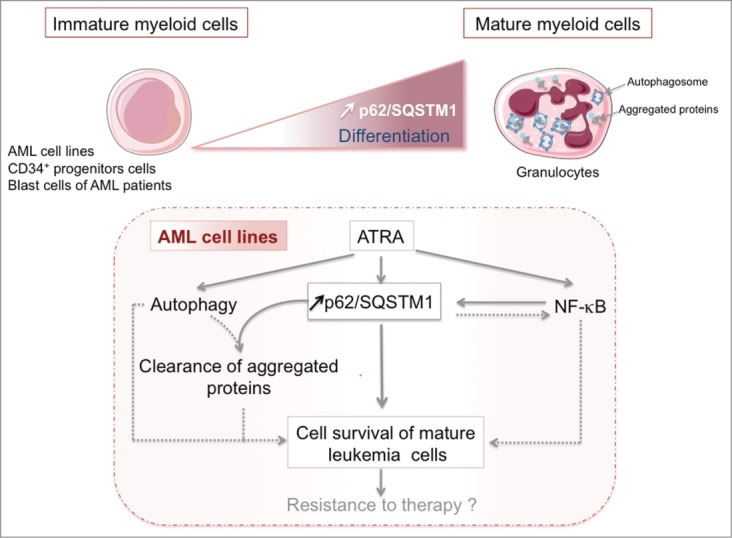Figure 1.

Pro-survival role of p62 during myeloid leukemia cell differentiation. Low levels of sequestosome 1 (SQSTM1, best known as p62) are a characteristic of cells that display an immature myeloid phenotype (i.e., acute myeloid leukemia [AML] cell lines, primary CD34+ progenitors cells, primary blast cells from AML patients) compared with terminally differentiated cells. All-trans retinoic acid (ATRA) induces granulocytic differentiation of AML cells, which is associated with p62 upregulation, an increase in autophagic flux, and the accumulation of aggregated proteins in mature AML cells. p62 upregulation is under the control of NF-κB activity; conversely, p62 can activate the NF-κB activity under certain conditions. p62 mediates survival of mature AML cells and alleviates the accumulation of protein aggregates that occurs during differentiation. This suggests a role of p62 in ATRA resistance observed in some patients with AML. Dashed lines show other pro-survival pathways that are stimulated in response to ATRA. Additional factors involved in the regulation and function of p62 remain to be identified (see text for more detailed information).
